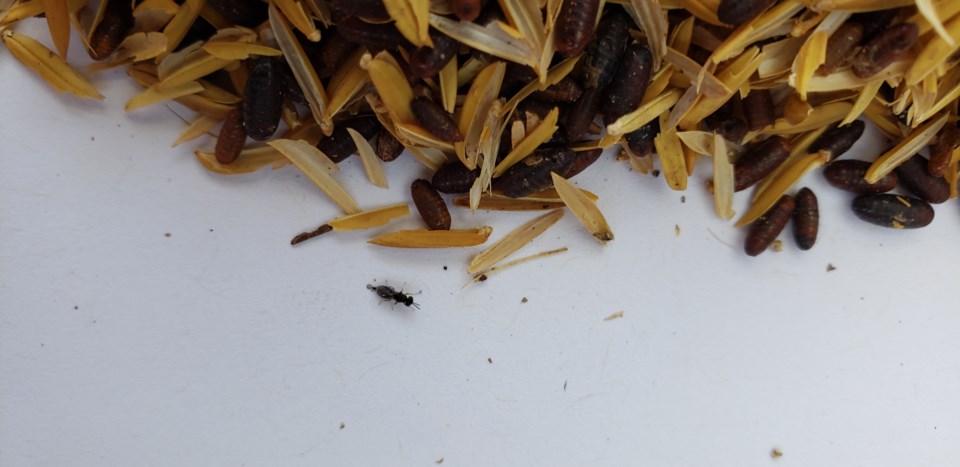It seems that with each year that passes, I am writing more and more on alternative strategies for controls to use with pest issues you encounter in your garden or work-related enterprise. We have made a huge disruption in the natural world with our presence, and especially where we congregate in large and dense communities, it is important to minimize our effects and maximize building back that balance in our outdoor world. Biological controls offer this option for better balance in your world.
Introducing any biological control can be effective but does not act like a pesticide solution. Let’s take an example by looking at biological control of flies. Spraying a multitude of chemical products on these flies will work for a while, but insects evolve quickly and can develop immunity to the products you are using, which in turn causes us to use more toxic products to gain the same control.
A biological works differently but not as quickly as many biologicals are effective by interrupting the life cycle of the problem critter, and over time gains control of the population.
My personal introduction into the beneficial world when I was an intensive livestock producer and provided an ideal environment to the many species of flies by providing livestock, bedding debris and my home landscape to aid these pesky flies in living a happy life. Always looking for a sustainable, environmentally friendly solution to this out-of-control fly problem, I began using parasitic wasps for fly control and over time, I had no more flies.
For me and countless others who embrace this method of control we now enjoy a much more pleasant outdoor experience – even if we do keep critters. For more information please go to www.orchidhort.com or email us at [email protected]
They are a parasitic biological control as they break the lifecycle of the fly by laying their eggs in the fly pupae. The wasps then hatch, devour the fly larvae, and mate to form a new generation. The lifespan of the wasp ranges from 16 to 28 days, depending on the species. The wasps' duties include crawling, digging and searching. They fly to move themselves a little bit, but they're basically
crawlers and are useful in horse corrals, cattle feedlots, dairies, poultry houses, swine facilities and kennels. Any type of manure producing facility or fly breeding area will be an attractive method of controlling flies. The wasps do not harm vegetation and are also used on a variety of crops and horticultural or ornamental plants. The wasps are effective against most field-type breeding flies including the typical house fly, horn fly, blow fly, black flies, cluster flies and stable fly with some control against the horse and deer fly.
As with any biological control, it is important to realize that the parasitic wasps are not a cure-all. Integrated pest control includes baits, traps, residual wall sprays and general cleanliness. It is important to develop a control program that is custom-designed to your specific needs. As a result, you will not see an immediate elimination of flies from your environment after introducing the parasites.
It can take anywhere from 30 days to a year or more to attain the desired control levels, depending on a number of factors. These factors include: the time of year; the number of flies present to start with; untreated breeding areas within migrating distance of your location; weather conditions; past history; and supplemental efforts used in conjunction with parasite releasing (cleanup, insecticide use, etc.). \As with any pest problem one of the first steps to solutions is identifying specific pests, study their lifecycle and then find suitable solutions.
If you would like more information, please contact us at [email protected] or go to our website at www.orchidhort.com
Hanbidge is the Lead Horticulturist with Orchid Horticulture. Find us at www.orchidhort.com; by email at [email protected]; on facebook @orchidhort and on instagram at #orchidhort.
Tune into GROW Live on our Facebook page https://www.facebook.com/orchidhort or check out the Youtube channel GROW https://www.youtube.com/channel/UCzkiUpkvyv2e2HCQlFl0JyQ?



